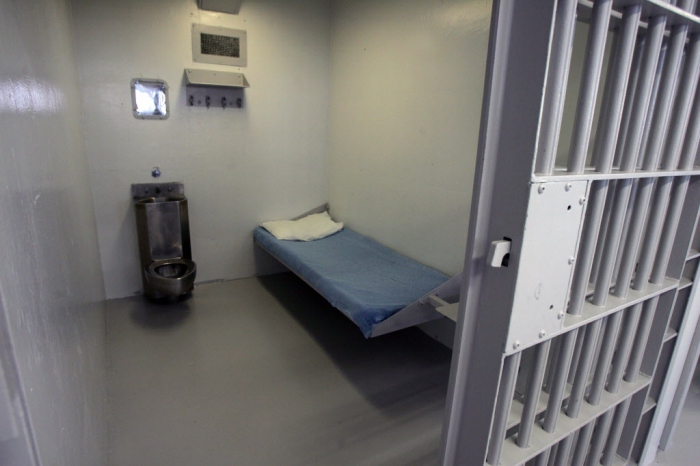In the Russian Federation, one of the forms of unlawful acts or omissions is administrative offenses, the responsibility for the commission of which is provided for by the Code of Administrative Offenses of the Russian Federation. This Code sets out in detail the procedure for imposing administrative penalties. Their types, terms and other features are also described.

The concept of administrative punishment
Administrative sanction (punishment) is a measure of responsibility established by the state for committing administrative offenses, used to prevent the commission of new possible crimes by both citizens who have previously committed them and other persons.
The meaning of this type of punishment cannot consist in humiliating the human dignity of the person who committed the offense, or in inflicting suffering on the physical plan, as well as its task is not to harm the business prestige of the legal entity.
The goals and concept of administrative penalty are enshrined in the Code of Administrative Offenses of the Russian Federation, in chapter three, article 3.1.
Types of penalties for committing administrative offenses
The punishments under consideration, as a rule, are expressed in the impact on a person morally and (or) financially. Namely, they include such coercive measures as:
- Warning - the official censure of the offender in writing. It is established only for the first time the offense is committed and in the absence of harm or threat to human life and health, animals, the environment, cultural heritage, state security, in the absence of the threat of natural disasters and property damage.
- A fine is a monetary penalty, the maximum amount of which depends on the violations committed and are prescribed in article 3.5 of the Code of Administrative Offenses of the Russian Federation. As for the minimum amount of this penalty, according to the same source of law, the size of the fine cannot be less than 100 rubles, and for the commission of road traffic offenses - 500 rubles.
- Confiscation - the compulsory seizure of the instrument of commission or the subject of an administrative violation into state ownership.
- Depriving a natural person of a special right. The application of administrative penalties of such a plan is carried out for systematic or gross violations of the procedure for using the right previously granted to the offender (for example, deprivation of a driver’s license). The term of such deprivation may not be less than one month and more than 3 years.
- Arrest - keeping an individual in isolation from society. The legislator provides, in general, a maximum period of arrest of 15 days, and in cases of certain categories of violations - up to 30 days (for example, for violation of the state of emergency).
- Administrative expulsion from the Russian Federation is the compulsory, controlled movement of foreign persons or stateless persons outside the country.
- Suspension is temporary termination of legal entities or citizens engaged in business without a legal entity. Such an administrative penalty is a punishment in cases where there is a threat to the life or health of people, infection, epidemics, technological disasters, radiation accidents, as well as if the offender committed actions in the field of trafficking in narcotic, psychotropic substances, laundering of illegally obtained income, and financing of terrorism, turnover and production of alcoholic and alcohol-containing products, management order, public safety and order, urban planning, transport safety information, protection of property, certain types of activities for citizens of other countries and stateless persons, as well as in the field of attracting them to work at retail facilities. The suspension of activity is established for a period of up to 90 days.In situations where the circumstances that served as the reason for the imposition of this punishment are lost, the penalty is canceled by the court, an official ahead of schedule.
- Disqualification - a ban on holding positions in the federal state civil service, similar structures of constituent entities of the Russian Federation, etc. This measure is set for a period of 6 months to 3 years.
- The ban on attending sporting events is a temporary restriction on a citizen’s right to be in places of official sporting events on the days of their holding. This administrative penalty may be imposed for a previously committed violation by a person of behavior at such an event and may range from 6 months to 7 years.
- Correctional work is the performance of free socially useful work by an offender in his free time. The term of this punishment can be from 20 to 200 hours, while a person can work out no more than 4 hours a day.
Basic and additional penalties
For the commission of one offense, a basic punishment or a basic and additional administrative penalty may be imposed. In situations where a citizen is charged with primary and secondary sanctions, but for some reason one of them cannot be applied to him, the offender is assigned only the one that can be established.
Warning, disqualification (except for the withdrawal of a driver’s license), a fine, arrest, suspension of activity, disqualification and compulsory work can be applied only as the main administrative penalties. The Administrative Code of the Russian Federation includes confiscation, deprivation of the right to drive a vehicle, expulsion from the country, and a ban on attending sporting events as additional punishments. At the same time, they are entitled to apply them as basic penalties.
Punishment for several offenses committed
The legislator establishes the procedure for imposing administrative penalties in the event that a person has committed several criminal acts.
So, according to the Code of Administrative Offenses of the Russian Federation, when two or more administrative offenses are committed, punishment is imposed for each of them. And when committing one action (inaction), which contains the elements of several offenses, the responsibility for which is provided for in two or more articles, the punishment is assigned in the form of the most severe of sanctions.
Moreover, the imposition of administrative penalties can be carried out using additional administrative penalties, which are provided for by each of the relevant sanctions.
General rules for penalties

An administrative penalty for the commission of offenses under the Code of Administrative Offenses of the Russian Federation is imposed within the limits established by law in accordance with this code. When imposing punishment for these acts, circumstances that may mitigate or aggravate liability, the identity of the perpetrator and his financial situation are taken into account.
In exceptional circumstances, taking into account the property status of the accused and the nature of the act committed, the court may impose a fine in the form of a fine, the amount of which is less than the minimum amount established by law. So, it is at least 10,000 rubles for citizens, at least 50,000 rubles for officials, and at least 100,000 rubles for legal entities. Moreover, the penalty imposed cannot be less than half of the minimum penalty prescribed by law.
If a citizen has violated the law in the field of narcotic, psychotropic or other dangerous substances, the court may order him a compulsory medical examination, preventive measures or treatment for dependence.
One and the same person, a legal entity for committing the same offense cannot be punished twice.
The appointment of an administrative penalty does not relieve a person from the obligation to perform those actions for the imperfection of which he was charged with the corresponding punishment.
Extenuating circumstances
The administrative penalty, according to the legislation of the Russian Federation, should be selected taking into account extenuating circumstances, if any, took place at the time the offense was committed. Weakening liability measures include:
- voluntary reporting to the authorities about the violation by the person who committed it;
- remorse of the offender;
- voluntary termination of unlawful acts;
- assistance to investigating authorities in establishing circumstances related to the relevant act;
- compensation for damage caused, elimination of harm by the offender voluntarily or prevention of harmful consequences;
- the state of passion or difficult life circumstances of the accused;
- minority offender;
- the pregnancy of the offender or the presence of her young child.
The imposition of an administrative penalty can be made taking into account those mitigating circumstances that are not specified in the Administrative Code of the Russian Federation or the laws of the subjects, but recognized as such by a judge, competent authority or official in a particular case. And also in this legal source, some administrative offenses provide for other separate mitigating circumstances.
Aggravating circumstances

Along with extenuating circumstances, the measure of administrative penalties should be chosen and taking into account aggravating conditions if they exist. These include:
- continuation of unlawful actions, regardless of the requirements of the authorized bodies (persons) to stop them;
- involvement of citizens under the age of majority in the commission of crimes.
As well as the commission of administrative offenses:
- group of persons;
- a homogeneous plan repeatedly, at a time when a person is considered to have been subjected to administrative penalty for the first similar crime;
- in a state of alcoholic, narcotic, psychotropic intoxication or refusal to undergo a medical examination for the presence of this fact;
- during a natural disaster or emergency.
A judge, an official or a competent authority shall not be entitled to recognize an aggravating circumstance if it is predetermined as a qualifying symptom of an offense by the relevant rules on administrative responsibility.
Statute of limitations of administrative offenses

In the Administrative Offenses Code of the Russian Federation, articles 4.5, 4.6 and 4.8 indicate the terms of the administrative penalty and the statute of limitations for such liability. In accordance with these articles, in a number of offenses committed, a decision on their case cannot be issued after 2 months from the date of the commission of this crime, if this case is considered by a judge, then after 3 months.
Such misconduct includes a violation of the law relating to:
- export control, inland waters, continental plume, territorial sea, exclusive economic zone RF, cartography and geodesy, names of geographical objects;
- environmental protection, energy saving, health protection, sanitary and epidemiological well-being of people;
- protecting minors from information that causes them harm;
- taxes and fees;
- road safety (Articles 12.8, 12.24, 12.26, 12.27 (Part 3) and 12.30 (Part 2));
- copyrights, trademarks, consumer protection;
- use of atomic energy, electric power industry;
- activities of credit organizations, microfinance enterprises, pawnshops, the securities market, insurance, clearing activities, trading, investment and pension non-governmental funds;
- advertising;
- Sports (in terms of the requirements for official sporting events regulations);
- referenda, elections, rallies, demonstrations and processions;
- state regulation of tariffs and prices, including utilities, natural monopolies;
- lotteries, gambling;
- shared construction of houses (multi-unit);
- agricultural cooperatives;
- activities of limited liability companies and joint-stock enterprises;
- terrorist financing;
- bankruptcy;
- enforcement proceedings;
- fire and industrial safety, cultural heritage protection;
- procurement, services and works to guarantee state and municipal needs (Articles 7.29-7.32, 19.5 (Part 7), 19.7.2 of the Administrative Code of the Russian Federation), as well as procurement, services and works by certain categories of legal entities (Article 7.32.3, 19.5 (h 7.2), 19.7.2-1 Administrative Code of the Russian Federation);
- production of ethyl alcohol and alcohol;
- violations in the field of patent, currency, antitrust, labor laws, the rules for staying in the country or residence in it of foreign citizens, legislation in the national payment system, on the unlawful use of insider information and market manipulation.
A similar limitation period applies for failure to submit or untimely submission to the federal antitrust authority at his request, information or the submission of knowingly inaccurate data.
For some offenses, the legislator provides for a statute of limitations of one year. These include violations of customs or budget laws. A two-year statute of limitations is provided for non-compliance with the legislation on political parties (Articles 5.64-5.68 of the Code of Administrative Offenses). Three years - for violation of the anti-terrorism law. Six years - for failure to comply with anti-corruption legislation.
In the event that an administrative penalty in the form of disqualification is provided for the commission of a crime, a citizen who has violated the law may be punished no later than one year from the date of its commission or from the day it is discovered, if the offense is ongoing.
In situations where the requirements to combat doping or to prevent it in sport are violated, in terms of the use of the prohibited primary principle and (or) the prohibited method, the statute of limitations begins from the moment of receipt of an opinion from the laboratory, which has been accredited by the World Anti-Doping Agency.
The statute of limitations for antitrust violations (Articles 14.9, 14.3114.31.1-.14.33) shall be calculated from the day the decision of the commission of the antimonopoly organization comes into force.
And the statute of limitations for crimes committed in the Antarctic begins from the moment the case file on the offense was received by the relevant competent authority.
A person who has committed administrative offenses shall be deemed to have been subjected to appropriate sanctions from the day the decision on sentencing has entered into legal force until the end of one year from the period intended for the execution of administrative penalties.

Compensation for damage caused as a result of administrative violations
Article 4.7 of the Administrative Code of the Russian Federation establishes the rules and procedure for covering damage to a property plan or moral damage caused as a result of an administrative violation. According to her, in the absence of disputes in this matter, a judge has the right to decide the question of compensation for such a loss by considering and establishing administrative offenses and penalties.
If, in the course of the case, disagreements arise regarding property damage or non-pecuniary damage, then they must be resolved in the manner prescribed by civil proceedings.
Other administrative penalties
In the Russian Federation categories of citizens are provided for which this or that punishment cannot be applied.So, for example, an administrative fine cannot be imposed on sailors, soldiers, foremen and sergeants who perform military service on conscription, and it cannot be imposed on cadets of military educational institutions until the conclusion of a contract with them.
The confiscation of weapons, ammunition, items intended for hunting or fishing, in the event that these activities are the sole source of income of the offender, cannot be made. A similar rule applies to the punishment of deprivation of the right to hunt, except in cases where a person hunted at unauthorized times or by prohibited means, guns.
In the Russian Federation, there is no decision to impose an administrative penalty in the form of deprivation of a driver’s license to persons who use the vehicle in connection with their disability. The exceptions are drunk driving, non-compliance with the requirements for medical examination, repeated violation of Articles 12.10, 12.15 (parts 4), 12.16 (parts 3), 12.24 and 12.27.
An arrest cannot be appointed as an administrative penalty for pregnant women, women who have children under 14 years of age, minors, disabled people of 1-2 groups, military personnel and persons with special needs. the rank of employee of the Investigative Committee of the Russian Federation, the Department of Internal Affairs and institutions of the penal plan, state employees. fire service, customs authorities and drug control. The same categories of persons cannot be punished with correctional labor, with the exception of women who have small children (in this case, children must be less than 3 years old).
Administrative exposition outside the Russian Federation is not applied as a punishment to foreign military personnel.

Having examined in detail what administrative responsibility and administrative penalties are, one can note the undoubted role of the punishments applied in this area, to pay attention to their educational, preventive or punitive nature. We can also conclude that it is important to establish the procedure for their application at the legislative level in order to avoid infringement of the rights and freedoms of citizens, which each person is endowed with in accordance with the Constitution.







